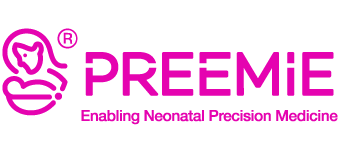Autism in preterm populations

Autism and preterm birth are two distinct conditions, but recent research has shown a link between the two.
Preterm birth, also known as premature birth, refers to the delivery of a baby before 37 weeks of gestation. In contrast, autism is a neurodevelopmental condition characterized by difficulties in social interaction and communication, and by repetitive behaviours.
Studies have found that preterm infants are at an increased risk of developing autism compared to full-term infants. This risk is particularly high for extremely preterm infants, those born before 28 weeks of gestation. For example, a study published in the journal JAMA Pediatrics found that extremely preterm infants were more than three times as likely to be diagnosed with autism as full-term infants.
The exact mechanisms behind this link are not yet fully understood, but there are several possible explanations. One theory is that preterm birth may affect brain development, leading to changes in brain structure and function that increase the risk of autism. Preterm infants often have to go through a period of intensive care and may experience complications such as brain injury, which can impact the development of the brain and increase the risk of autism.
Additionally, preterm infants may experience environmental factors that contribute to the development of autism. For example, preterm infants may have less exposure to social interactions, which are important for the development of social skills. Additionally, preterm infants may experience more stress, which can impact the development of the brain.
It is important to note that while there is an association between preterm birth and autism, this does not mean that all preterm infants will develop autism. Many preterm infants go on to develop normally without any issues.
Preterm birth is a risk factor for autism, particularly for extremely preterm infants. However, further research is needed to fully understand the underlying mechanisms of this association and to develop interventions that can help preterm infants at risk for autism to reach their full potential. Parents of preterm infants should be aware of the risk and consult with their paediatrician for any concerns. However, there are steps that can be taken to help prevent prematurity.
One of the most important steps is to get early and regular prenatal care. This can help identify any potential risks for prematurity, such as high blood pressure or infection, and allow for prompt treatment.
Another important step is to maintain a healthy lifestyle during pregnancy. This includes eating a well-balanced diet, getting regular exercise, and avoiding smoking and alcohol.
Taking folic acid before and during pregnancy can also help prevent prematurity. Folic acid is a B vitamin that is important for the development of a healthy baby. It can help prevent birth defects of the brain and spine, and may also help prevent premature birth. The Centers for Disease Control and Prevention (CDC) recommends that all women who could become pregnant take a daily supplement of 400 micrograms of folic acid.
However, a large number of the population has the MTHFR gene mutation which inhibits the way the body processes folic acid. Our body cannot produce folate on its own, so we must ingest it in order for it to be present in the body. Dietary folate has to be broken down by the body to make it active and absorbable so that the cells can make use of it. This process of folate breakdown creates methylated folate through MTHFR’s genetic work. Essentially, the MTHFR gene provides instructions for your body to make the MTHFR protein, which helps your body process folate, but if you have this common mutation your body cannot break down folic acid. There are lab tests you can do to check if you have this mutation; ask your doctor. If you have this mutation your doctor may recommend methylated folate, which is the active form of folate that your body uses.
In addition, considering that preterm infants are at an increased risk of developing autism it is important to avoid certain risk factors that may increase the chances of prematurity, such as fertility treatments that may induce a multiple pregnancy, tobacco use, alcohol or substance abuse, and certain medical conditions such as high blood pressure during pregnancy.
It is important to note that even with these preventive measures, prematurity may still occur; however, these steps can help to reduce the risk of prematurity and at the same time the risk of having an autistic child.



